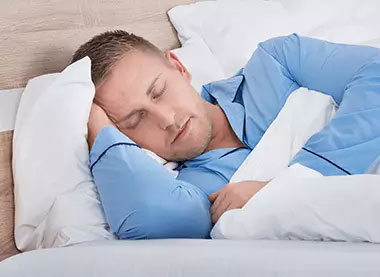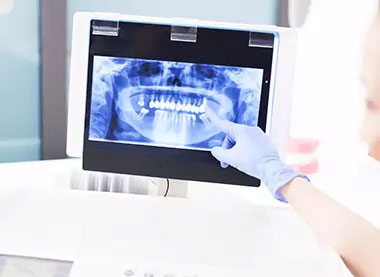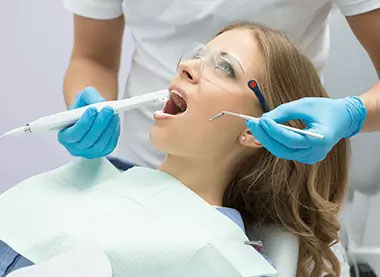How to Treat Sleep Apnea

Do you or your sleeping partner snore occasionally? Most people do, perhaps because they have a cold or allergies. However, persistent snoring could be an indication of a more serious problem which is called sleep apnea.
What is Sleep Apnea?
This is a sleep disorder that is characterized by frequent pauses in breathing. People who have sleep apnea will often cease breathing for several seconds at a time until their body prompts them to restart breathing again. These episodes can occur hundreds of times a night, starving the body of oxygen. Also, every time breathing restarts a person will partially awaken, preventing them from obtaining deep enough, restful sleep that is needed for good health. There are a couple of types of sleep apnea. The most common form is obstructive sleep apnea (OSA), where the airway becomes blocked usually when the soft tissues in the throat collapse as the muscles relax during sleep. Central sleep apnea is far less common and is caused by the brain failing to signal the muscles to breathe.
Risk Factors for Sleep Apnea
It is a problem that can affect anyone, even young children although they tend to outgrow this condition generally. Potential risk factors include being male, being over the age of 40, having a family history of sleep apnea, or being overweight. Other factors that may increase your risk include having a large tongue or smaller jawbone, or large tonsils.
Symptoms That You Might Have Sleep Apnea
One of the main symptoms is loud snoring and especially where it frequently ceases, and you restart breathing with a grasp or snort. Snoring can leave you with a dry or a very sore throat, and sleepiness can lead to a lack of energy during the day. Also, not having enough sleep can cause forgetfulness or changes to your mood, and you may wake up with a headache more frequently.
How Sleep Apnea Can Affect Your General Health
If you suspect you may have sleep apnea, it is essential to seek professional help. Without treatment sleep apnea can increase the risk of health problems which include heart failure and heart attacks, stroke, diabetes, and high blood pressure. It may also worsen ADHD, can cause depression and headaches. The sheer lack of sleep can affect everyday activities, worsening performance at work or at school, and increasing the risk of motor vehicle accidents or other accidents involving machinery.
What to Do If You Think You Have Sleep Apnea
If you think you might have sleep apnea, contact us here at Gentle Dental Arts. Our dentist Dr. Alexander Larsen can assess you to see if any factors are likely to cause sleep apnea such as the shape of your jaws or the size of your tongue. The most definitive test for sleep apnea is to have a sleep study, where your quality of sleep is monitored and analyzed by a sleep specialist. A sleep study is often carried out in a special sleep lab where you will stay overnight, or it might be possible to use portable equipment for home testing, and especially if you are only likely to have mild or moderate sleep apnea.
Treating Sleep Apnea
The treatment for sleep apnea depends on the degree of severity.
Treating Severe Sleep Apnea
More severe forms of sleep apnea are often treated using a Continuous Positive Airway Pressure machine, which uses a small mask that fits over your nose during sleep, providing you with a continuous supply of pressurized air and preventing your airway from collapsing during sleep. Although highly effective, it is a machine that can take a bit of getting used to. Another solution is a Bi-level Positive Airway Pressure machine (BPAP) and which works in a similar way to a CPAP machine. With BPAP machines, the airflow changes whenever you breathe in and breathe out.
Surgery for Sleep Apnea
Sometimes surgery can be helpful in treating severe sleep apnea and especially if you have a small lower jaw and an overbite, causing the throat to narrow. Surgery can also correct enlarged tonsils or a deviated nasal septum.
Treating Mild or Moderate Sleep Apnea
Mild to moderate sleep apnea can frequently be treated with a custom-made dental device. This looks a little like a night guard or night splint and fits over your teeth. It usually works by holding your lower jaw slightly forward so your tongue cannot fall backward during sleep and your airway is held open. There are several different types of dental devices available for sleep apnea, and once you become accustomed to wearing it, you should find it’s quite effective.
Self-Help Measures for Treating Sleep Apnea
Sometimes lifestyle changes can help to reduce the severity of sleep apnea. For example, make sure you maintain a healthy weight or try to lose a few pounds if needed. Avoid using alcohol or having caffeinated drinks or chocolate too close to bedtime. Make sure you don’t go to bed feeling overly full or too hungry. Exercise can be useful, but make sure you exercise during the day. Exercising too close to bedtime can increase wakefulness. Otherwise, try to choose a more restful exercise routine just before bedtime such as yoga. If you smoke, try to quit because it can increase swelling in your airway, increasing the risk of snoring and sleep apnea, and of course, it is terrible for your dental and general health! Changing sleeping positions may be useful, so try to avoid sleeping on your back.
In addition to this advice, there are several other things you can do to help improve the quality of your sleep by practicing what is called good sleep hygiene. This simply means practicing good habits to help optimize your sleep quality. These include making sure your bedroom is a restful and serene space and avoid bright lights an hour or so before bedtime. Following a bedroom routine will help your body recognize when it’s time to go to sleep, for example taking a warm bath or shower, or reading in bed. If you can, try to go to bed and wake up at the same time each day because this reinforces your natural sleeping and waking cycle.
If you think you or a loved one might be snoring too much or has sleep apnea, please get in touch with Gentle Dental Arts. We will work with you to ensure you and your entire family enjoy a restful night’s sleep.











